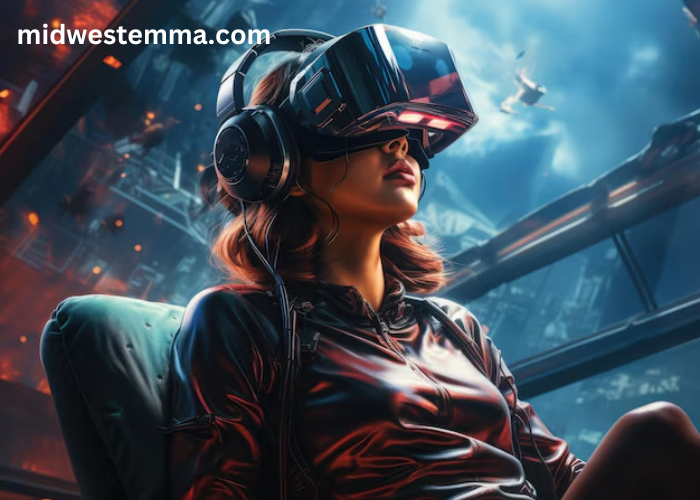In recent years, virtual reality (VR) has transformed from a niche technology into a mainstream phenomenon, revolutionizing the landscape of modern gaming. This immersive technology has broken boundaries, offering gamers an unprecedented level of interaction and immersion. From the early days of clunky headsets and limited experiences, VR has evolved into a sophisticated and accessible platform that promises to redefine how we play, learn, and experience digital worlds. Explore a wide range of movies and TV shows on SDMoviesPoint2. Stream or download your favorite content in high quality for an unparalleled viewing experience.
The Evolution of Virtual Reality
The concept of virtual reality has been around for decades, but it wasn’t until the last decade that technological advancements made it feasible for consumer markets. Early VR systems, like the Oculus Rift and HTC Vive, laid the groundwork with their innovative designs and capabilities. These headsets provided the foundational hardware necessary to immerse players in three-dimensional environments, offering a glimpse into the potential of VR gaming.
Immersive Experiences
What sets VR apart from traditional gaming is the level of immersion it offers. Unlike conventional gaming, where players interact with a screen, VR places players inside the game world. This is achieved through headsets that track head movements, controllers that mimic hand gestures, and sensors that map the player’s environment. The result is an experience that feels tangible and real, blurring the lines between the virtual and physical worlds.
Games like “Beat Saber,” “Half-Life: Alyx,” and “The Walking Dead: Saints & Sinners” showcase the potential of VR. “Beat Saber,” for example, turns players into futuristic rhythm warriors, slicing through blocks to the beat of the music. “Half-Life: Alyx” offers a narrative-driven experience, with intricate puzzles and intense combat that feel lifelike due to VR’s immersive nature. These games demonstrate how VR can enhance gameplay by making it more engaging and physically interactive.
Expanding Horizons
Beyond gaming, VR is making significant strides in other areas such as education, training, and therapy. Educational VR applications allow students to explore historical sites, conduct science experiments, and even practice surgical procedures in a safe, controlled environment. In professional training, VR simulations help pilots, surgeons, and military personnel hone their skills without the risks associated with real-life training.
Therapeutically, VR is used to treat conditions such as PTSD, anxiety, and phobias. By creating controlled environments, therapists can expose patients to their fears gradually, helping them to overcome these issues in a safe space. This therapeutic use of VR showcases its potential beyond entertainment, highlighting its versatility and impact on various aspects of life.
Challenges and Future Prospects
Despite its rapid growth, VR faces several challenges. The cost of high-quality VR equipment can be prohibitive, and the technology requires significant processing power, which not all consumers can afford. Additionally, issues such as motion sickness and the need for physical space to use VR effectively pose barriers to widespread adoption.
However, the future of VR in gaming looks promising. Advancements in technology are making VR more accessible and affordable. Standalone headsets like the Oculus Quest have eliminated the need for high-end PCs, making VR more user-friendly. Moreover, as developers continue to innovate, we can expect more sophisticated and varied VR experiences that cater to a broader audience.
Conclusion
Virtual reality is undoubtedly breaking boundaries in modern gaming. By offering immersive, interactive experiences, it has the potential to redefine the way we perceive digital entertainment. As technology continues to evolve, the possibilities for VR are endless, promising a future where the virtual and real worlds intertwine seamlessly, creating experiences that were once the stuff of science fiction. Whether through intense gameplay, educational tools, or therapeutic applications, VR is set to leave an indelible mark on the gaming industry and beyond.









